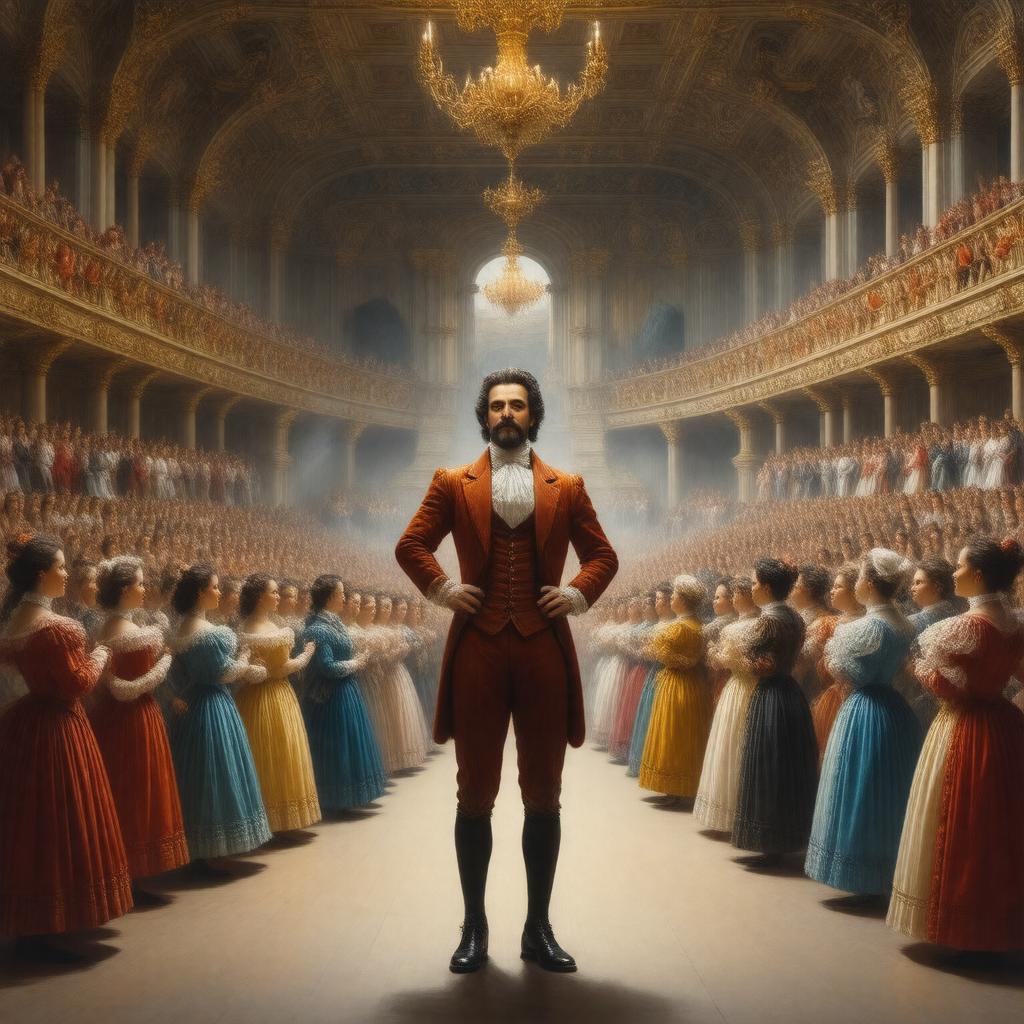Prompt
"Create an image of a vibrant and lively opera house scene, set in 19th-century Seville, Spain. Depict the interior of the Teatro Argentina in Rome, where The Barber of Seville premiered on February 20, 1816. Include a colorful crowd of opera-goers, dressed in elaborate attire, and a stage with a backdrop of a Seville street. In the foreground, feature Figaro, the main character, a charming and quick-witted barber, played by a renowned opera singer such as Juan Diego Flórez or Luciano Pavarotti. Incorporate elements of the opera's iconic arias, such as 'Largo al factotum' and 'Una voce poco fa', into the scene. Style the image in a classical, romantic manner, reminiscent of 19th-century opera illustrations."

